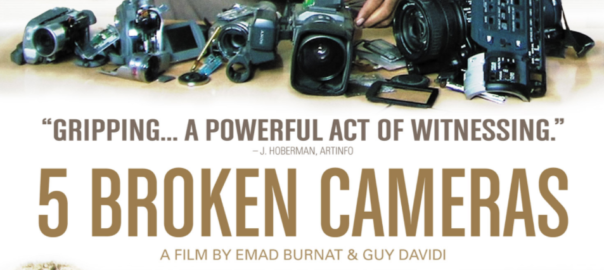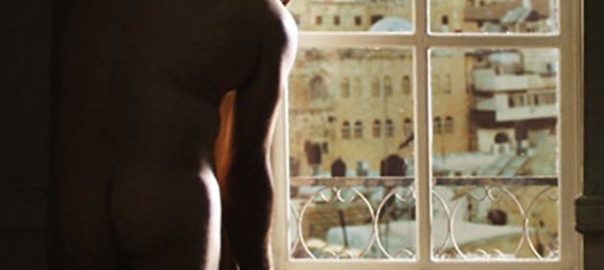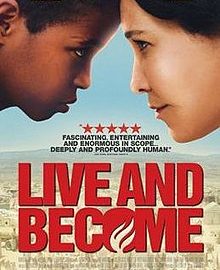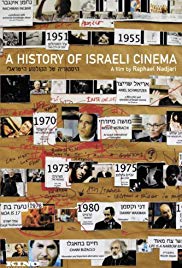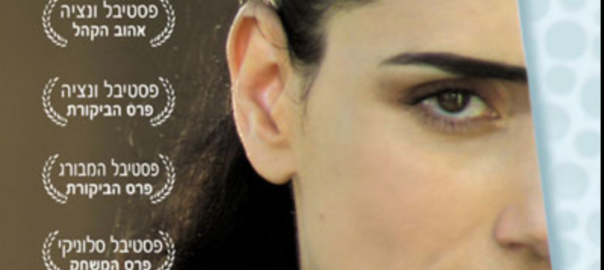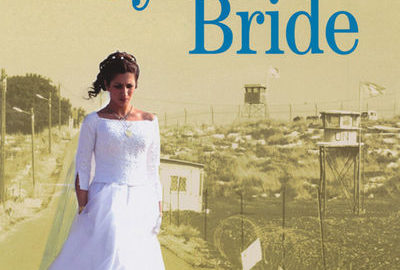Emad, who lives in the Palestinian village of Bil’in, buys his first camera when his son Gibreel is born, and puts it to use beyond creating family memories. When the government attempts to build a barrier across villagers’ lands, Emad films the resistance and is caught up in a storm of arrests and night raids. One camera after another is shot or smashed. And with each camera, a new chapter of Emad’s story unfolds.
And they were both naked, the man and the woman, and were not ashamed – Book of Genesis 2:25
A modern-day Adam and Eve story that explores what happens during the moment of intimacy–and what gets lost after it ends.
The year is 1984, and thousands of Africans from 26 different countries are struck by famine and flee to camps in Sudan. Israel and the United States begin a joint initiative to airlift thousands of Ethiopian Jews to Israel. Desperate to save her son from starvation and death, a Christian Ethiopian mother convinces her son to declare himself Jewish. Considered an orphan, the boy is adopted by a French Sephardi family that lives in Tel-Aviv. He grows up with the fear that his secrets and lies will be exposed: he is neither a Jew nor an orphan—only a little boy far from home.
For more information visit the Israel Film Center
In contemporary Jerusalem, a small Jewish family leads an ordinary life until, after a car accident, the father mysteriously disappears. They all deal with his absence and the difficulties of everyday life as best they can. While the adults take refuge in silence or traditions, the two children, Menachem and David, seek their own way to find their father.
According to filmmaker Raphael Nadjari, Israeli cinema has gone through two stages. The first, 1933-1978, began with the nature of Zionism and exaltation of the Israeli endeavor in Palestine and ended in a more personal study of the Ashkenazi psyche. The second stage, 1978-2005, was defined by a greater diversity of topics as filmmakers tackled everything from the Israeli-Palestinian conflict to the contradictions of modern life. A History of Israeli Cinema tells the story of the building of a gaze on a society torn by ethnics, religious, and political conflicts. It attempts to understand, to denounce, and to explore these complex subjects, always searching for the right ethic, the right form. A History of Israeli Cinema is the result of years of research, studies, documentation, screening, and interviews. Actors, thinkers, producers, filmmakers, professors, and critics worked to build a narrative that remains fragile and incomplete. It is the process rather than the result that is shared here.
Watch Part 2 here.
In 1979, Viviane, who is married with three children and is considering divorce, struggles to choose between tradition and inner dreams and desires. Her family attempts to persuade her not break strict Moroccan tradition by going through with her divorce of her husband Eliahou. But Viviane is ready to leave her old life behind to live a new life in modern Israel. To Take a Wife is a story of love and fear, of old and new, and examines the hard choices that must be made when forging a new path.
Mona’s wedding day is slated to be one of the saddest days of her life. She knows that once she crosses the border between Israel and Syria to marry Syrian TV star Tallel, a man she has never even met, she will never be allowed back to her family in Majdal Shams, a Druze village in the Golan Heights. Her family must also contend with the clash between the traditional and the new, as Mona’s various family members unites to see her off. The Syrian Bride is a story about physical, mental and emotional borders, and the strength and will to cross them.
